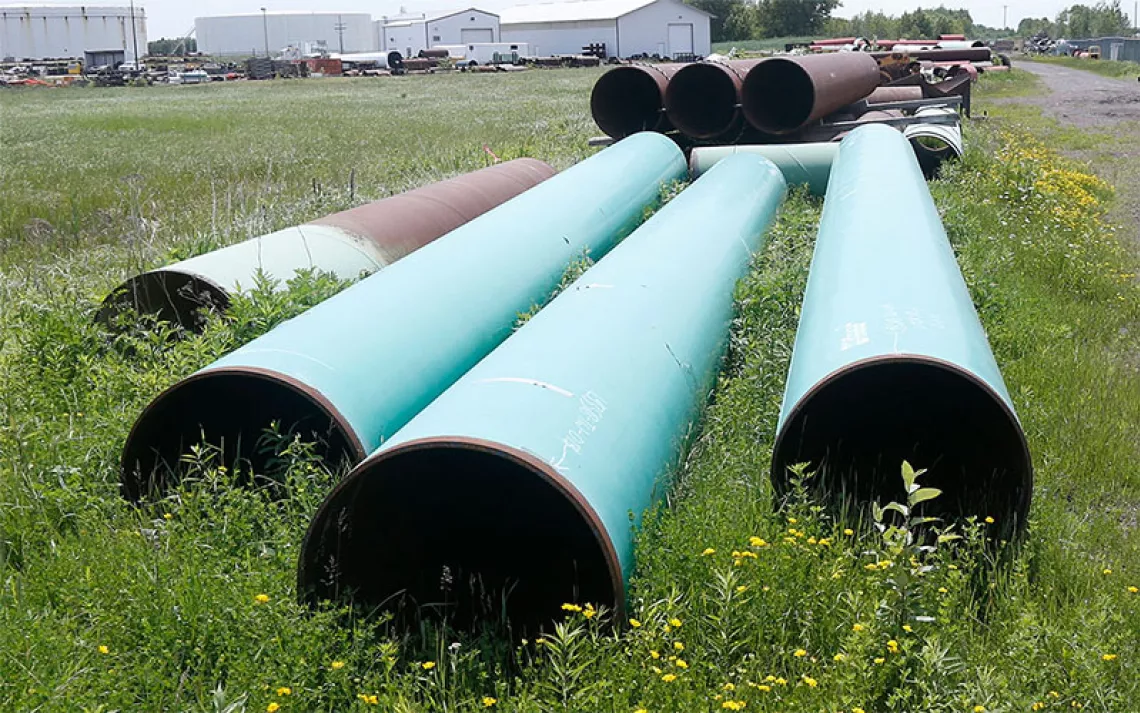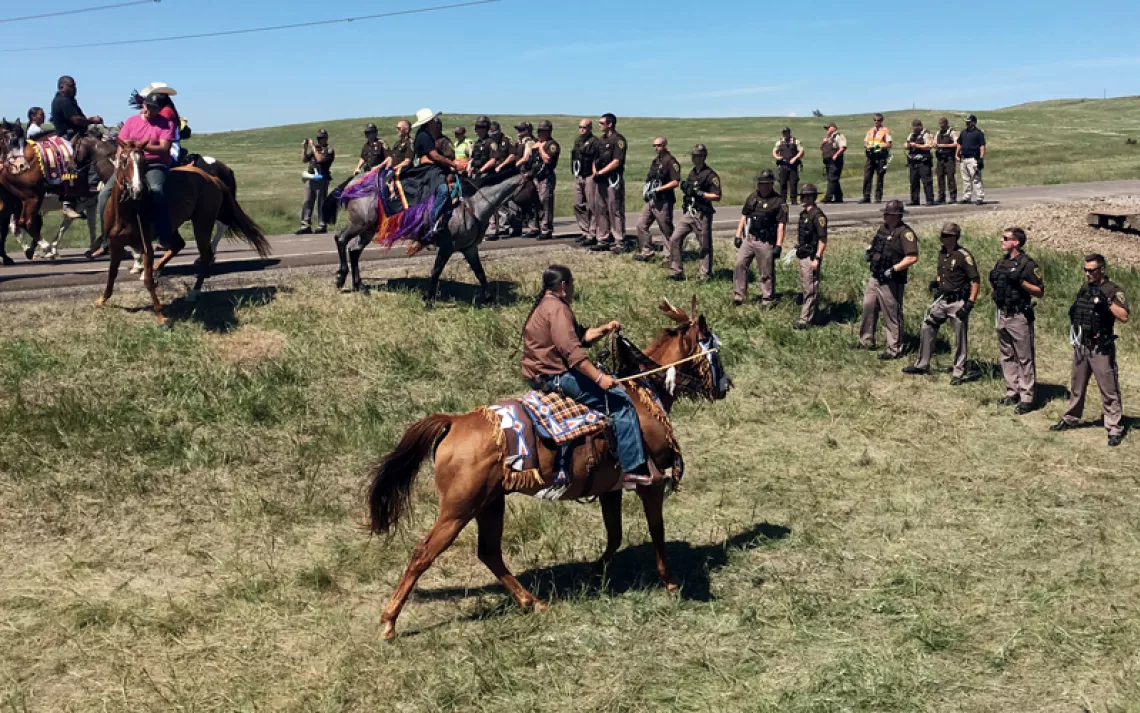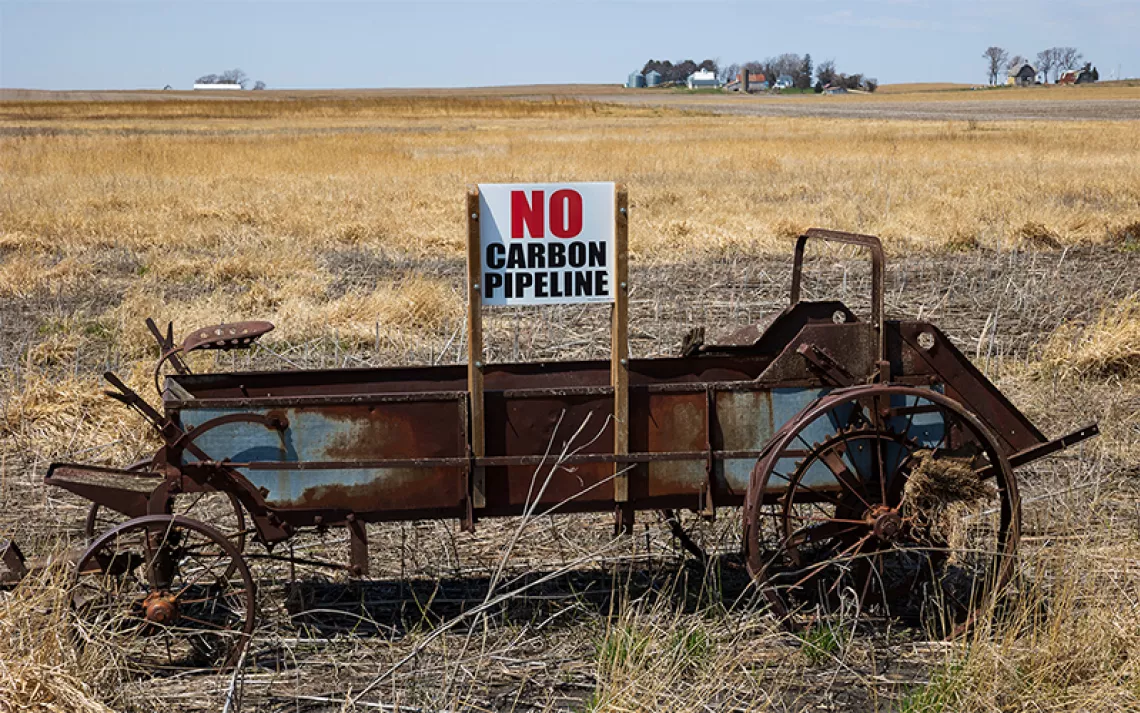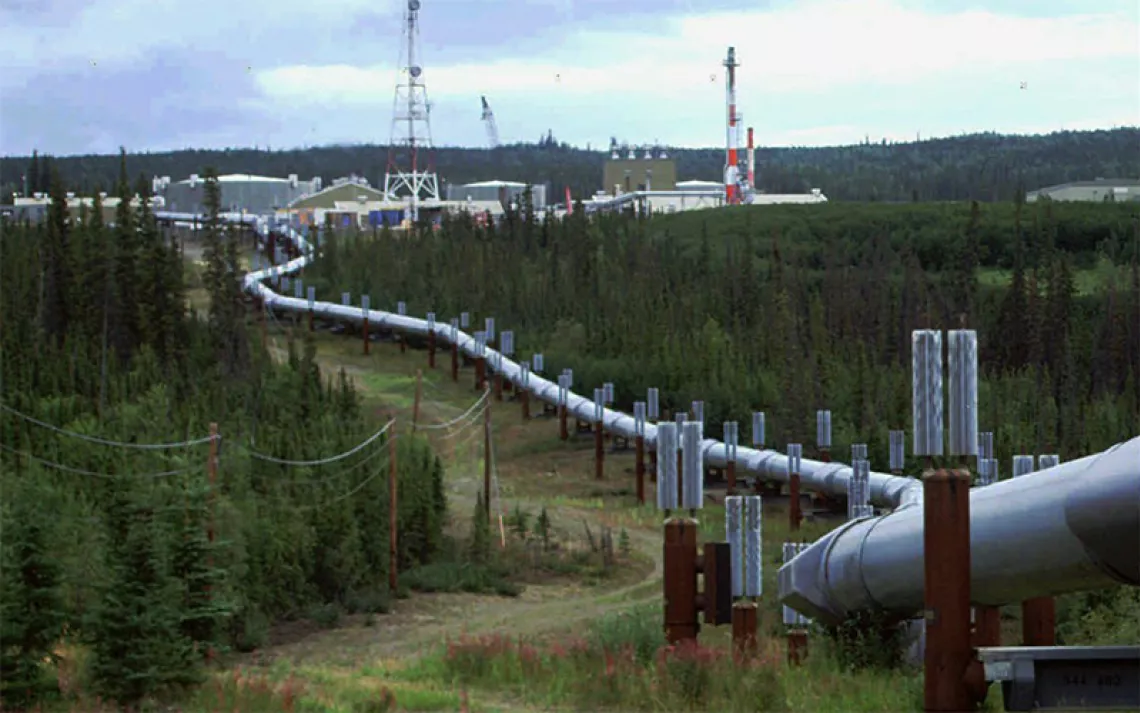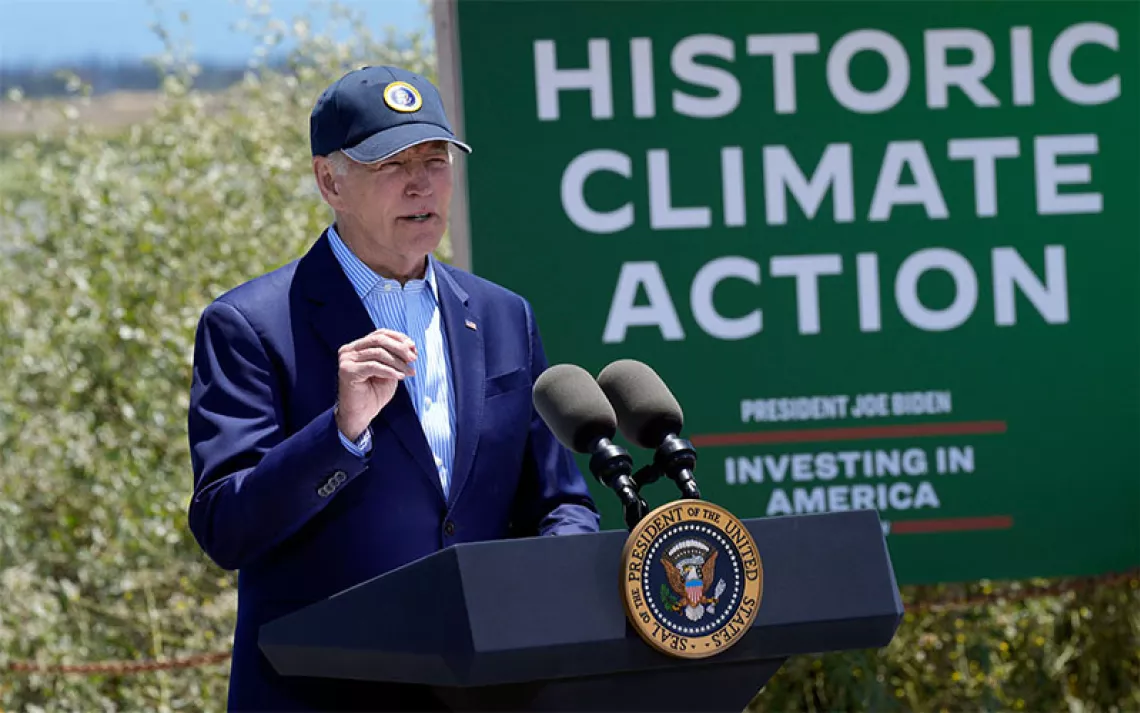President Biden, Live Up to Your Commitments and Shut Down DAPL
The Dakota Access Pipeline and other climate-destroying projects have to go
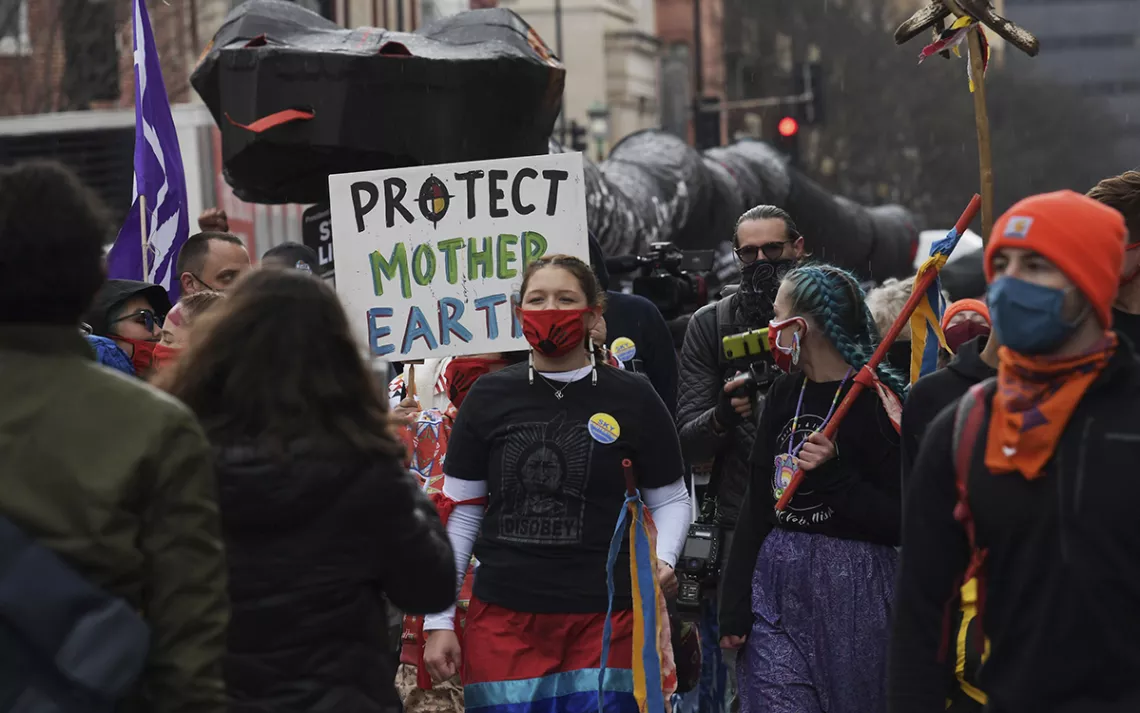
Photo by Lenin Nolly/NurPhoto via AP
On the afternoon of Friday, April 9, Indigenous leaders, environmental justice advocates, and climate activists across the country who have stood on the front lines of the fight against the Dakota Access Pipeline (DAPL) tapped a seven-digit passcode into their phones. They were dialing in to a court hearing in Washington, DC, that would determine the future of the crude oil conduit. For the first time since Joe Biden became president, the US Army Corps of Engineers would make known their position on the illegal, climate-destroying project.
In January, a court found that the corps violated federal law in 2017 when it issued permits for DAPL to cross beneath the Missouri River. The court ordered a robust environmental impact statement that would examine the pipeline’s climate impacts, its potential to rupture, and its effects on Native American nations. The court allowed the pipeline to continue operating while the environmental review is underway.
The hearing in federal district court teed up an opportunity for the Biden administration’s army corps to answer a couple key questions: Would the corps allow the pipeline to continue to illegally operate without a permit? Or would the agency shut it down in accordance with environmental laws and regulations?
Those of us listening in collectively held our breath as we waited to see what the corps would do.
Unfortunately, we never got the chance to collectively exhale. The Army Corps of Engineers indicated it will not shut down DAPL, despite the ongoing threats the line poses to the Standing Rock Sioux Tribe and the tribe’s drinking water.
The Standing Rock Sioux Tribe, who has led this fight for years, quickly criticized the decision, saying that the continued operation of the pipeline “poses an unacceptable risk to our sovereign nation.” The Sierra Club also joined in the choir of opposition, with executive director Michael Brune stating, “President Biden’s actions today fail to live up to the climate and tribal commitments he made, nor is it in line with the bold action he has taken since taking office.”
To say the decision was a disappointment doesn’t begin to cover it. But there’s still time for the Biden White House to correct course and to shut down this pipeline once and for all.
And yet, the fight against extreme energy doesn’t end with Dakota Access. The fight continues as long as there is a continued reliance on oil. The Line 3 tar sands pipeline in Minnesota, the Line 5 oil pipeline in Michigan, and the rush to produce oil and gas for export to new markets overseas—they all, like DAPL, represent a threat to a stable climate.
President Biden has taken bold climate action so far in his administration. On his first day in office, he canceled the Keystone XL Pipeline, marking a hard-fought victory for communities, clean water, and the climate. And this week, he’s announced that the United States will slash its greenhouse gas emissions by 50 percent between now and 2030.
But in order to be a true climate champion, Biden must make sure his actions match his rhetoric. He has real opportunities to live up to the bold climate agenda he laid out for his administration, not only within the context of the DAPL fight but also when it comes to halting Line 3 and Line 5, as well as stopping the expansion of fossil fuel exports.
Grassroots resistance to fossil fuel expansion continues to swell, as Indigenous-led resistance camps crop up along the Line 3 pipeline’s proposed route in northern Minnesota. Earlier this month, frontline Indigenous youths and organizers from both the Line 3 and DAPL fights gathered in the nation’s capital to call on the president to stop both pipelines and uphold the administration’s commitments to climate action, Indigenous rights, and environmental justice. Just like he did on Keystone XL, President Biden should rescind the federal permits for Line 3 and put this project in the rearview mirror.
Enbridge, the energy infrastructure firm behind Line 3 that has a history of spills with its projects, is also trying to reroute its Line 5 pipeline, which runs beneath the Straits of Mackinac. In November, Michigan governor Gretchen Whitmer ordered Line 5 shut down. Now, we need President Biden to shut it down once and for all, and put an end to Enbridge’s dangerous plans to expand its dirty oil pipeline projects across the Midwest.
Finally, the Biden administration should halt US oil and gas exports. Communities living near oil and gas infrastructure live with the pollution and health risks created by producing fossil fuels for export overseas. As our domestic demand for energy decreases, we should not burden communities with the risks of ongoing (or even increased) extraction for use elsewhere.
While we still haven’t been able to breathe that collective sigh of relief, we will take a deep breath and stay the course to continue organizing in partnership with Indigenous leaders to push the Biden administration to do what’s right and necessary on DAPL, Line 3, and Line 5, and to work toward a future free from fossil fuels.
 The Magazine of The Sierra Club
The Magazine of The Sierra Club
